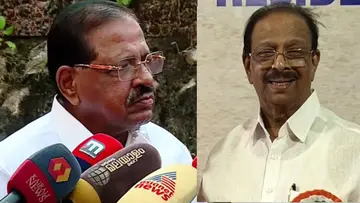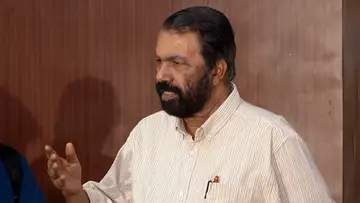National
India Conducts Nationwide Mock Drills Amid Rising Tensions with Pakistan After Pahalgam Attack

Image courtesy: Press Trust of India (File picture)

Web desk
Published on May 06, 2025, 04:13 PM | 4 min read
New Delhi, May 6, 2025 — The Indian government has announced the implementation of nationwide mock drills on May 7, 2025, as part of a strategic civil defence response to the escalating geopolitical crisis with Pakistan following the deadly terrorist attack in Pahalgam, Jammu and Kashmir, on April 22. The attack, which claimed the lives of 26 tourists — including one from Nepal — has drawn widespread condemnation and sparked fears of further conflict between the two nuclear-armed neighbours.
In response, the Ministry of Home Affairs issued a directive to all states and union territories to carry out comprehensive mock drills across 244 categorised civil defence districts. These exercises are designed to test emergency preparedness, enhance institutional coordination, and educate citizens on civil defence measures in the event of a “hostile attack.”
The nationwide drills aim to test emergency response plans, enhance coordination among agencies, promote civilian training and awareness, and evaluate communication and control systems. Scenarios include air-raid warning activation, crash blackout measures, evacuation simulations, and camouflage protocols for critical infrastructure. Hotlines and radio communications with the Indian Air Force are also being tested, with drills extending to the village level.
States such as Himachal Pradesh, Odisha, and Uttarakhand have already initiated focused preparedness exercises. In Himachal, 85 mock drill sites were activated, while Odisha conducted industrial disaster simulations across 16 districts.
Prime Minister Narendra Modi held high-level security meetings, and all major political parties have condemned the Pahalgam attack. Most notably, the people of Kashmir — at the center of geopolitical contention — held widespread protests, hartals, and passed a unanimous resolution in the J&K Assembly denouncing the massacre.
A senior official from the National Disaster Management Authority (NDMA) told that, “We are reviewing preparedness. Loopholes have been identified and are being addressed.”
Pakistan has denied involvement in the Pahalgam attack. However, it has responded with military demonstrations, including two missile tests in rapid succession under “Exercise INDUS.” Prime Minister Shehbaz Sharif stated that the successful missile launches "made it clear that Pakistan's defence is in strong hands."
India’s military response remains undecided publicly. While PM Modi has reportedly given the armed forces a free hand regarding the “mode, target and timing” of a response, the government has so far opted for strategic restraint, focusing instead on civil defence, diplomatic isolation of Pakistan, and evidence collection.
The United Nations Security Council convened closed-door consultations at Pakistan’s behest, urging both nations to show restraint. Iran offered to mediate, while Russia stood in solidarity with India. Diplomatically, India is reportedly preparing to present its case to the Financial Action Task Force (FATF), seeking action against Pakistan for allegedly harbouring terror groups — a move reminiscent of Pakistan’s prior listing on the FATF grey list from 2012 to 2022. Other measures under consideration include the suspension of diplomatic visas and reassessment of the Indus Waters Treaty, though legal complications remain.
While the national mood has largely been one of unity, concerning signs of communal tension have emerged. Isolated incidents of hate speech and violence, including the murder of a Muslim youth in Agra, have prompted alarm. There are reports of Kashmiri students and traders facing threats in several states. Authorities have been urged to clamp down firmly on such divisive behaviour.
“There must be zero tolerance for those spreading hate. Unity and secular values are our strongest defence against terrorism,” a senior civil rights advocate stated.
The nationwide drills signify a proactive approach to national security, emphasising preparedness, resilience, and civil participation over reactionary measures. Experts warn, however, that military action alone is unlikely to dismantle terrorist networks supported by entrenched state and non-state actors in Pakistan.
The challenge ahead lies in not only ensuring a robust security response but also in maintaining national unity, preventing communal polarisation, and pursuing sustained diplomatic pressure to combat cross-border terrorism.










0 comments